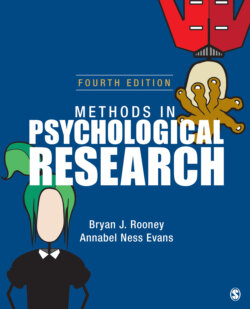Читать книгу Methods in Psychological Research - Annabel Ness Evans - Страница 21
На сайте Литреса книга снята с продажи.
Critical Thinking
ОглавлениеCritical thinking is the ability and willingness to assess claims and make objective judgments on the basis of well-supported evidence. Critical thinking skills can be applied to any topic or problem.
Critical thinkers do the following:
Ask questions
Objectively define problems
Examine the available evidence
Assess assumptions and biases
Avoid emotional reasoning
Separate facts from opinion
Avoid oversimplifying
Consider alternative explanations
Tolerate uncertainty
Maintain an air of skepticism but remain open-minded (i.e., not cynical)
Critical thinking is particularly relevant to psychology. Thought and thinking are important areas of study in psychology. Cognitive psychologists in particular study problem solving, concept formation, creativity, and other mental processes we would call thinking. Moreover, thinking is a topic that interests everybody. We all want to know more about thinking processes. Researchers in psychology generate many competing findings on topics that we find personally interesting or relevant. The general public’s fascination with popular psychology has created a huge market for pseudoscientists and quacks. As a result, students of psychology must be particularly prudent when it comes to evaluating claims and beliefs. And critical thinking skills help us do that.
Critical thinking skills help us recognize different types of evidence and the kinds of conclusions we can draw from each. For example, limited personal experience and anecdotal evidence are not reliable sources of knowledge. A pervasive habit of many people is to form beliefs on the basis of limited experience. We sometimes call this the n of one fallacy. An acquaintance of ours, who should know better, believes in ghosts. Why? Because his father claimed to have seen one. One anecdote was enough for our friend to hold a belief. Limited conclusions can be drawn from such anecdotal evidence.
FYI
Do not confuse skepticism with cynicism. Skepticism is a healthy reluctance to accept new information without sufficient evidence, but cynicism is a scornful, negative attitude toward new ideas. A skeptic wants to see the evidence.A cynic is not interested in the evidence; he or she has already decided to not accept the new information.
The popular press is designed to be popular and often dramatizes or overgeneralizes research findings. Critical thinkers are aware that the popular press is a biased source of information. A critical thinker will view a single report linking urine drinking and improved health with skepticism. A critical thinker will not rely on a newspaper writer’s assessment of research (or even the researcher’s assessment) but will assess the research for himself or herself.
